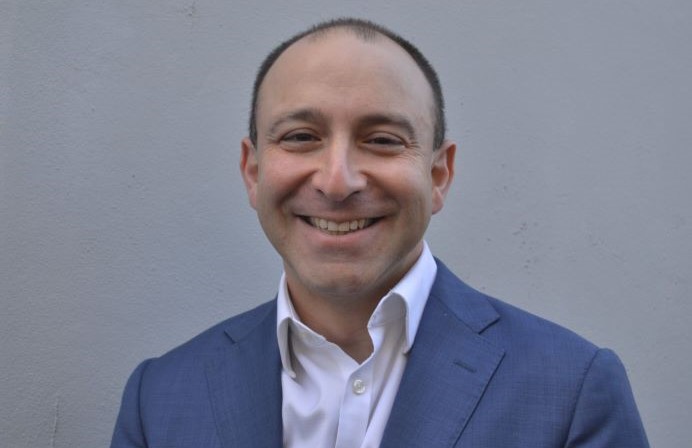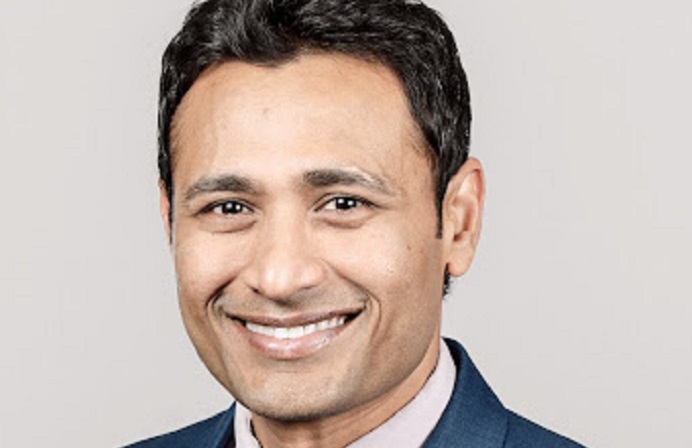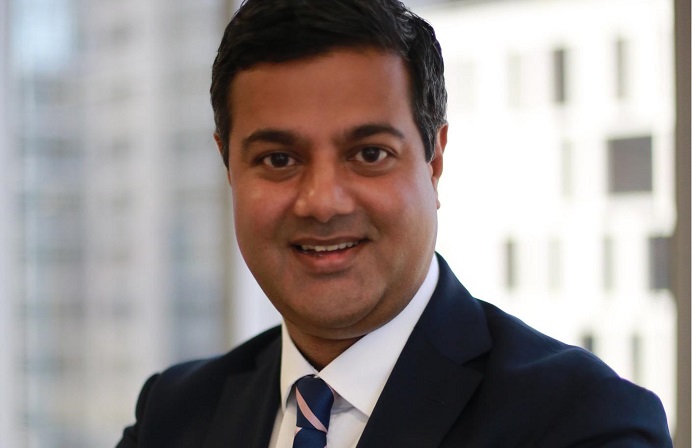
“Open Banking may be the first cab off the rank, but it will be one of many… it’s important to look at it not only from an Open Banking perspective but also from an open data regime perspective.”
FST Media: Amongst the start-ups you work with, what do you feel is their overriding reason for being? Is their goal to completely sweep the incumbents off their perch or do they seek to work alongside them and become a complementary part of the existing financial services market?
Tsen: The data says that 80 per cent of fintech start-ups are B2B focused. In other words, they sell to the incumbents – that is the main form of fintech, those that sell to banks and insurers. Just by the data, they want to work alongside them, they want to partner, and to provide services to them to make them better organisations. It’s just that the remaining 20 per cent of start-ups are B2C and are probably the ones that get the most headlines, and likely the ones doing something fundamentally different to the incumbents. But most actually want to work with existing institutions, the big four, because that’s their business – that’s what they do.
FST Media: How does Stone & Chalk serve to facilitate these fintech-incumbent partnerships?
Tsen: We’ve got 27 corporate partners; most of the big financial services players come in and sponsor us. And the reason for that is that they want to connect with what’s happening at the cutting edge. These are incumbents that realise that outside-in innovation is what they need, so the challenge is what you’d expect: an incumbent isn’t set up necessarily to work with a start-up. They’re more used to working with the IBMs and Oracles of the world. So, one of the key failure points I see, is where a start-up really struggles to understand who to speak to at these big organisations: ‘Who is the person that I should be speaking to that’s going to be able to help me forge a path to this organisations?’ A second failure point is, even if they find the right person, it’s getting thrown the IBM procurement process, which is 1000s of pages, and not suited towards a four-person start-up; it’s suited towards a 5,000 plus global organisation. Failure point three is that even if they get past that, actually making it out to market and having the product integrated can be incredibly challenging. They got to cross a whole bunch of hurdles; they’ve got to work internally with people; there’s a whole bunch of challenges. And, finally, failure point 3.5 or four even, is how do you then start that cycle again? Even if you get that all right, how do you come back around and do it for the next product with an incumbent?
There are a lot of failure points that are challenging to overcome. On both sides of the fence, it’s a real struggle to align that. And that’s why you can see not as many partnerships as there could be. But I’m really hopeful, I think on both sides, that those start-ups and incumbents are getting a better sense of how to work with each other. We’re seeing that at the coal face.
FST Media: Diversity is crucial to inspiring any innovation environment; what is more, being able to nurture that diversity in a traditionally homogenous industry is key. How does Stone & Chalk seek to promote a diverse ecosystem amongst fintechs and the organisations with whom you work?
Tsen: Again, looking at the data, it is reflective of the overall start-up landscape. If we look at the fintech EY census, about 20 per cent of founders in the fintech ecosystem are female. At Stone & Chalk, we take that really seriously in terms of understanding the role we play in the ecosystem is an important one in promoting diversity.
Internally, a majority of our leadership team at Stone & Chalk is female. We promote diversity through events and through the support of our organisations. We’re very conscious that it’s an important issue. The most important thing that we can do as an organisation is to show leadership internally, and we do that really strongly by making sure that as an organisation we are incredibly diverse.
The industry, of course, has a long way to go; there’s no doubt about that. But we’re doing our bit to make sure that we’re helping with that diversity.
FST Media: We’re just a few months away from Open Banking’s pilot launch in Australia. What do you feel are the opportunities and challenges presented to start-ups from this new regime?
Tsen: Speaking broadly, I think it’s going to be one of the most impactful regulatory changes we’ve seen in financial services within the last decade. It will have a massive impact on industry; though, it’s going to take time for it to filter through and have that impact.
Recently, we’ve seen that Open Banking legislation that was set to pass not pass. There is a real risk that Open Banking will again be delayed, and that is unfortunate.
Importantly, though, when we speak of Open Banking, what we really mean is the ‘Consumer Data Right’ (CDR), a point that was addressed in Scott Farrell’s Open Banking Review.
What Australia has done is completely different to the UK. In the report commissioned by Treasury, the treasurer envisaged a regime that was ‘beyond banking’. While the first port of call may be banking – and hence why it is referred to as ‘Open Banking’ – the ‘consumer data right’ regime will then move to incorporate the energy sector and a host of other industries, meaning we will have an economy which allows free-flowing data – something completely different to what we’ve seen in the UK, where now they’re trying to grapple with how do we open up to other sectors.
Open Banking may be the first cab off the rank, but it will be one of many. So, it’s important to look at it not only from an Open Banking perspective but also from an open data regime perspective; that’s what I feel the power of the CDR will be – to open up data across a number of industries and become incredibly impactful because of that. It’s that multiplicative effect of having data across banking, energy, telecommunications, insurance and government; there’s a huge array of opportunity around making that data available to businesses. Of course, there’s still a long way to go; we haven’t even got one shot off yet and, unfortunately, we’re still waiting for that shot to go off.
FST Media: What infrastructure challenges are FSIs facing in their efforts to fully adhere to Open Banking regulations?
Tsen: From an incumbent’s perspective, many of them sit on legacy systems. Most say that it’s a challenge to modernise to the point where they are able to open up their data by way of APIs. Make what you will of that.
For most start-ups, however, the Open Banking regime is an opportunity, and most that we speak to are ready to go and are ready to ingest data; the broad framework is something they’re already used to in terms of accessing the data by way of APIs. These start-ups understand what the likely outcome’s going to be, but at a broader level, they’re setting up a regime to access data and they have to think about that very carefully because it’s imported, sensitive data, which does create challenges. But I tip my hat to all involved parties. From Fintech Australia perspective [Alan is Chair of the peak body], I’ve been involved with Open Data submissions and spoken to the regulators in treasury around it, and everyone involved has been very thoughtful about the security issues, and around the overall accessing of that data. There are challenges from an incumbent’s perspective, and broader challenges just from the perspective of the regime. But it will, I think, be successful.
FST Media: Do you feel that the way the Consumer Data Right (CDR) regime in Australia is unfolding provides more opportunities for neobanks and fintechs than the Open Banking regime that was introduced in the UK?
Tsen: The opportunity we’ve had in Australia is to watch another jurisdiction go through the process, and I think we’ve learnt some lessons. It’ll be interesting to see how it is actually implemented. My guess is that the challenge is really going to come down to the ‘nuts and bolts’ running of the regime. For example, the ACCC is working really hard to set up a register and to become a regulator that can tick people off and add them to this register. That’s not what the ACCC has historically done; historically, they’ve been an enforcement agency. They’re working hard to learn to do this, which is a practical challenge. And, to be honest, that’s where we’re going to see a lot of the challenge around open banking – it’s in on the ground practical issues.
Don’t get me wrong, there’s a lot of issues in fly, in terms of security protocols and other concerns, that still aren’t 150 per cent resolved. But I think – and we saw this in the UK – there’s going to be on-the-ground challenges in terms of implementing and running an Open Banking regime.
FST Media: Looking at some potentially ground-breaking innovations stirring the industry today, including blockchain, AI, and ML, what emerging technology do you feel will have the greatest transformative impact on FSI in the next few years?
Tsen: I’ve been in the blockchain space for quite a while. While it’s certainly interesting, it’s probably another leap – perhaps five or so years away – before it has the impact that a lot of people predict it will. There’s still a bunch of stuff to figure out, and that’s just in terms of what is the ‘killer app’ for blockchain. In the near term, we’re going to see a massive uptick just by virtue of the fact – and it’s multiplicative again – of this ‘perfect storm’ concept. There’s a bunch of things coagulating at once, from regulatory change to consumers increasingly willing to try things with start-ups. Interestingly, the EY fintech adoption index places Australia at number five, showing Australians are very willing to try fintech start-up propositions and put their money in them.
For me, the standout technology trends today are AI and just cheaper, faster infrastructure. It’s never been easier to spin up a company. We often forget about Amazon AWS; a lot of the technology challenges that 15-20 years ago sat there no longer exist. I went to Sibos last year, and one thing that really dawned on me as I walked around the stands, is that it’s now possible to literally piece together a bank through the people in that building; you could actually just talk to people there and start to piece together all the technology you need to build a bank. That’s really been powered by cheaper, faster, more accessible infrastructure – we forget about that a lot of the time, but that’s sort of been one of the big catalysts as to why start-ups have become real and present dangers for incumbents.
FST Media: To your point on Australians’ readiness to embrace fintechs, why do you feel they are so willing to give them a go? Is it disenchantment with the incumbents is it just a pure willingness to try something new?
Tsen: I don’t know the real answer to this, but just as a general proposition, I think Australians are quite willing to try new products, and that’s often why you tend to see start-ups, including many big global companies, try their propositions in Australia relatively early on. For example, Australia was the number three market for Square (an American payments service), as Aussies are relatively willing to try new things. It’s a well-known test market, but I can’t be certain of an underlying reason for it.
We’ve also got regulatory changes and I think the Royal Commission has highlighted again the public’s big dissatisfaction with banks, which ultimately plays into the start-ups’ favour. We’re very likely to see a neobank – and I’ve been looking at the space quite deeply – be the number five banking institution in the next five years, and in the next 10, I wouldn’t be surprised if one of them pips the post to become number four.
Neobanks have a great opportunity in this country, so for me, I’m most excited about the big challengers who are going to come after the banks in Australia. They’ve got a great opportunity right now to take advantage of the momentum they have, starting up in aftermath of the Royal Commission. ◄
Alan Tsen will be a featured panellist at the 2019 Future of Financial Services, Melbourne. Spots are limited! Register now to secure your place.
– With contributions from Patrick Buncsi, Editor





